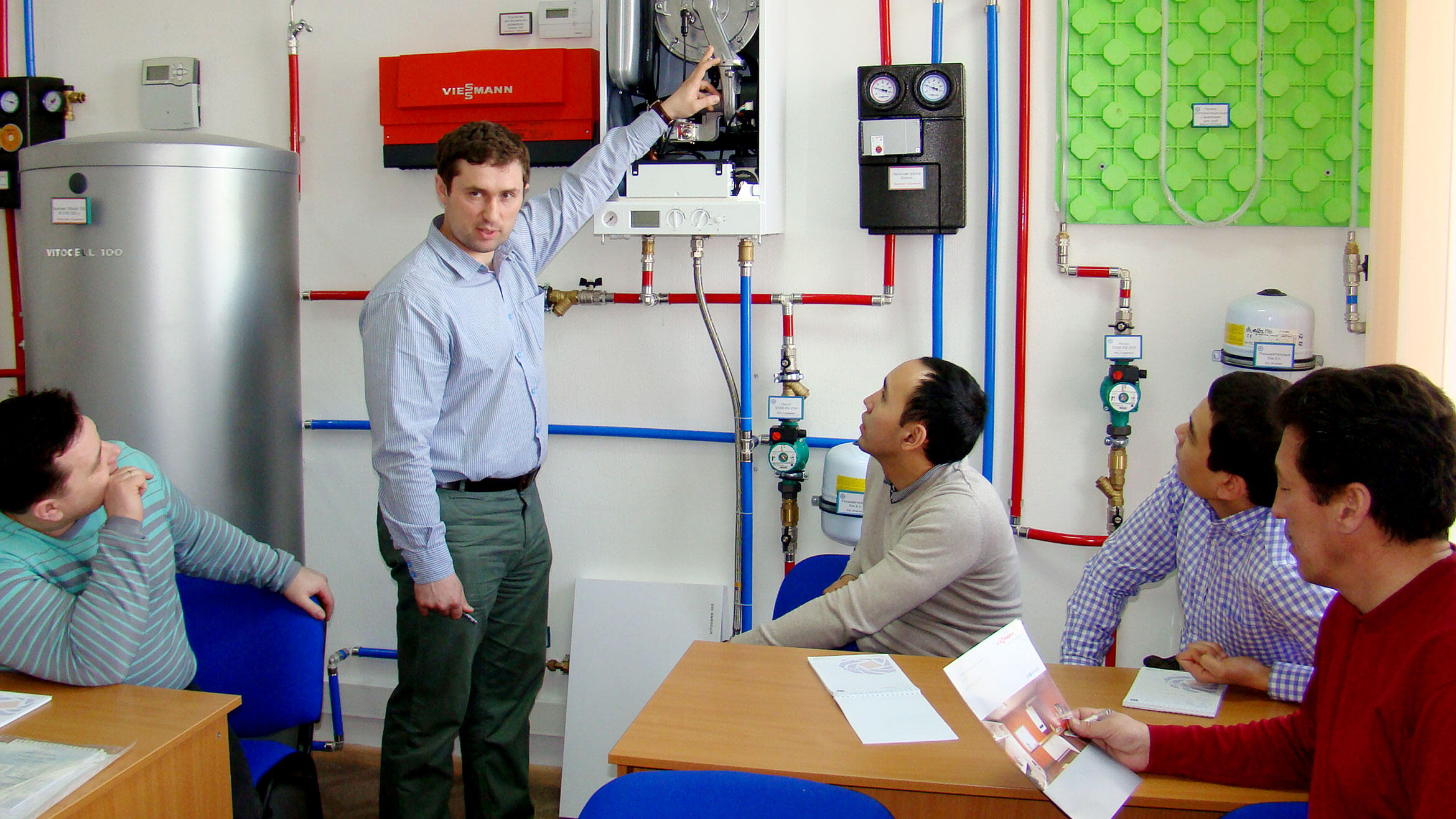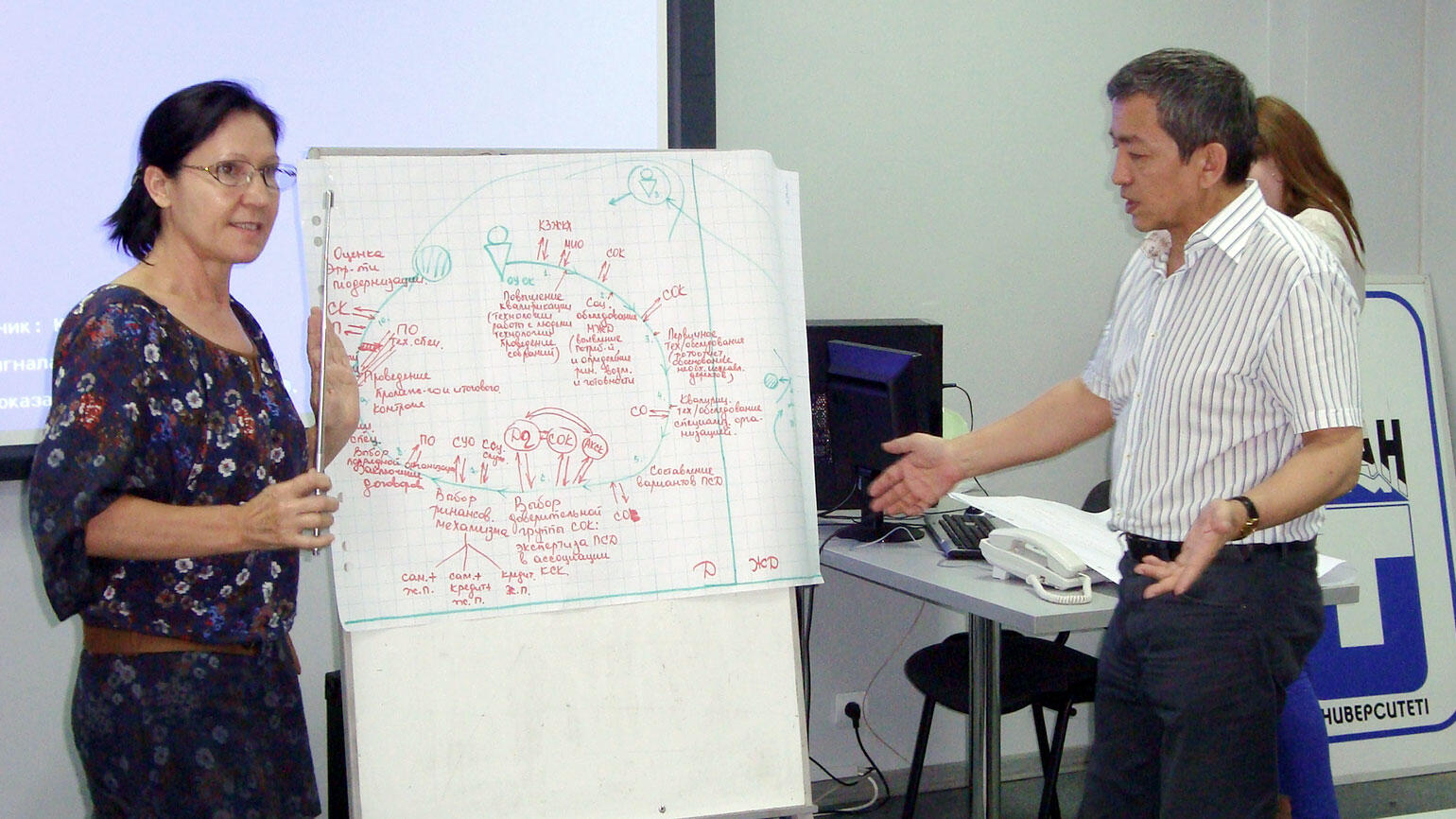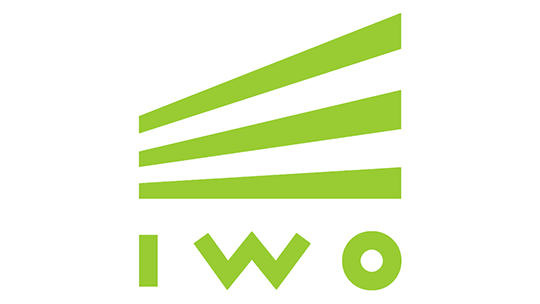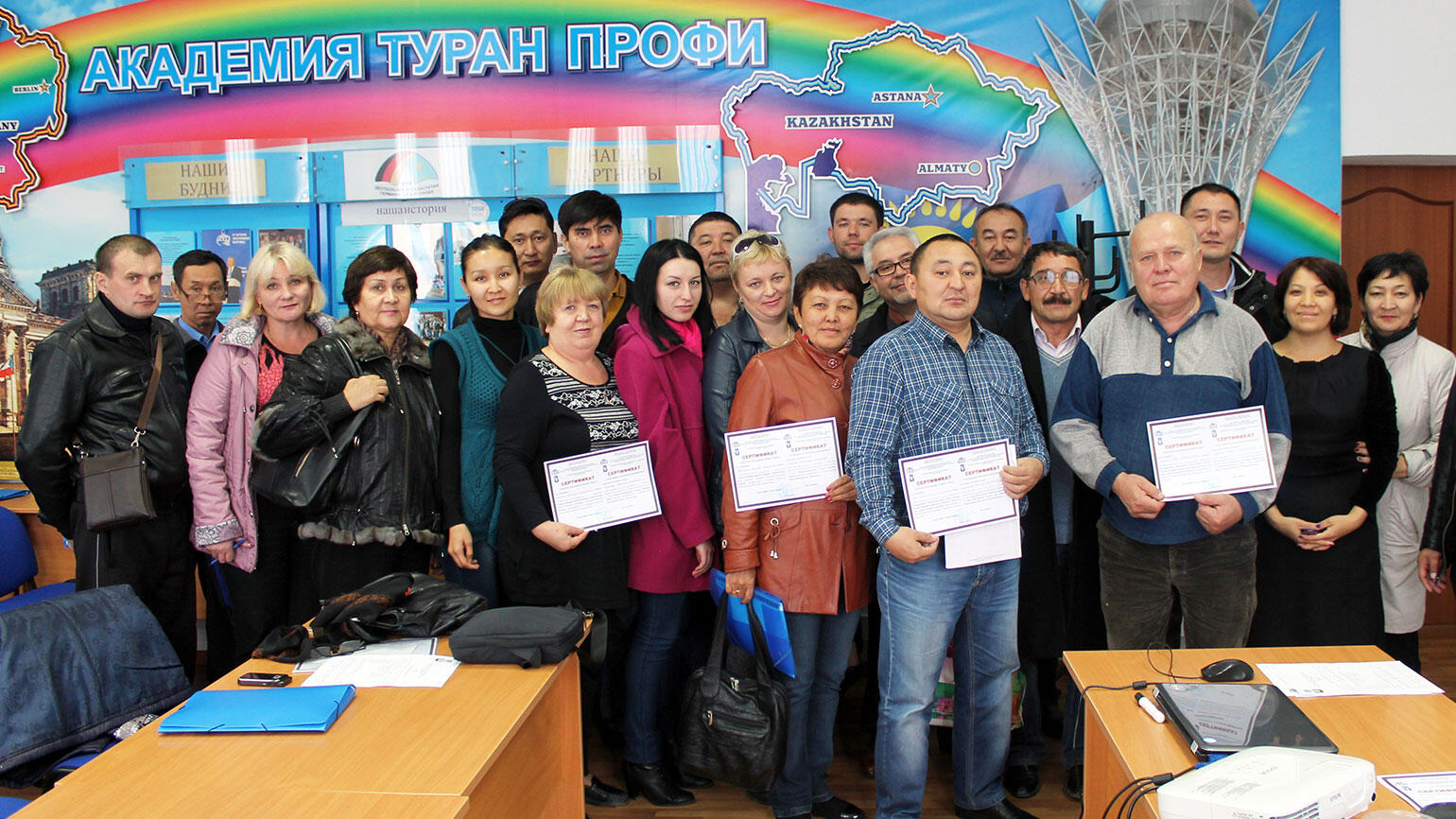Energy efficient building renovation in Kazakhstan
German Housing Initiative for Eastern Europe (IWO) • Learning modules for technical and administrative know-how

So far, the Kazakh building sector hardly uses any energy efficiency technologies, neither in new construction work, nor in renovating existing housing. About 32 per cent of all buildings, mainly built during the Soviet era, are in dismal condition due to the absence of renovation activities. The housing sector in Kazakhstan is the main user of heat, using about 40 per cent of total consumption. At 240 kilowatt hours per square metre and year, the heat consumption of Kazakh prefabricated buildings is about double that of the European average. Compared to renovated prefabricated buildings in East Germany, houses in Kazakhstan use about three to four times the amount of energy.
Almost all flats in prefabricated buildings were privatised immediately after the dissolution of the Soviet Union. The rate of home owners in Kazakhstan is 97.6 per cent. Yet there are hardly any efficient structures of self-administration that attend to the installation, operation, maintenance and renovation of jointly used municipal facilities in the fields of electricity, water and waste management, canalisation, gas supply and communication networks in the blocks of flats. To begin with, less than ten per cent of home owners are organised in self-administration structures. They lack the expert knowledge for establishing and maintaining the target-oriented administration of a home owner association. Housing administration societies, engineering offices and implementary construction companies lack the know-how required in technical planning and carrying out a building renovation with the objective of achieving energy efficiency.
By now, the Kazakh government has launched extensive reforms both in the fields of energy efficiency and vocational education and training. In September 2010, it passed the "Sector programme for modernising the housing and municipal economy by 2020". The programme mainly aims at safeguarding the future-oriented vocational training and continuing education provision for employees in the housing industry, both in the fields of administration and the construction industry. To develop an energy-efficient housing industry by 2020, the country will need approximately 5,000 specialists with higher education and about 10,000 technicians and craftsmen. Funds totalling some 1.38 billion euros have been allocated for the first phase from 2011 to 2015.
The reforms have paved the way for developing a continuing education programme for building renovation managers with a focus on energy efficiency. The training provision was designed and implemented by the German Housing Initiative for Eastern Europe (IWO e. V.), based in Berlin.
Numerous businesses from the German construction industry are involved in IWO; the initiative has already successfully implemented similar continuing education projects in the Baltic States and in Ukraine. In Kazakhstan, the IWO members involved in the project are: Viessmann Werke GmbH & Co. KG, European market leader in the field of heating technology, Lacufa GmbH Lacke und Farben, responsible via a network of distributors for the North-eastern European business of the building paint and insulation system manufacturer DAW, and Profine GmbH, global market leader in the field of plastic profiles for window and door systems.

The German partners have developed a continuing education programme including a curriculum in co-operation with the Kazakh Centre for the Development and Modernisation of the Housing and Municipal Economy and the International Professional Academy Turan-Profi in Kazakhstan and supported by an energy efficiency project organised by the United Nations Development Programme (UNDP). To this end, the German project partners have established a teaching cabinet at the Turan Profi Academy. The continuing education programme fully updates employees of housing authorities, construction businesses and housing administration societies to achieve state-of-the-art knowledge of technology and management for the modern, energy-efficient renovation of residential dwellings.
The continuing education programme participants are made aware of all aspects of energy-efficient building renovation. To this end, six course modules were developed, which are offered either as a full course over three months or as special seminars of one day to two weeks duration. This allows participants to attend only individual courses or to combine various topics from several modules. The individual modules cover the topics of project management of renovation projects, planning and implementation, renovation of façades and entrances, energy audits, communication, co-ordination processes and funding as well as pilot projects and practical examples.
The implementation of the continuing education programme cost approximately 400,000 euros. It was realised by way of a public-private partnership. The German develoPPP programme bore about half of the costs. In addition, the German federal government supports German businesses in the implementation of sustainable projects abroad.
At the start of the project, 15 Kazakh specialists from the partnering organisations had been invited to Germany to have a look at energy-efficient measures in complex renovation projects, the production of the building and other materials developed in Germany as well as modern heating technology and other innovative technologies; they also were made acquainted with the organisation of housing administration.
These multipliers helped to organise and carry out seminars and events in five regions of Kazakhstan. Over the course of the project period (2012 to 2013), a total of 16 weeks of training was provided in form of ten-day as well as five- to one-day seminars in Astana, Almaty, Karagandy, Kostanay and Pavlodar, involving both the German consortium partners and the Kazakh project partners.
Towards the end of the education project, an IWO member was commissioned by the United Nations Development Programme in Kazakhstan to contribute to a pilot project for modernising an urban housing estate located on the fringes of Astana. After completion of the conceptual phase, IWO considers presenting this German-Kazakh pilot project at the Expo 2017 in Astana focusing on the topic of energy efficiency and renewable energy to further disseminate the knowledge regarding the effectiveness of German technologies and materials.
Information
This sucess story was first published in the iMOVE publication Developing Skills for Employability with German Partners • 8 Success Stories from Central and Eastern European Countries and the CIS. The brochure was published in 2014.

